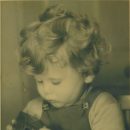School Life
Ronald Leedham: Visiting every six weeks
Ronald Leedham was born in 1929 in India. His family moved back to England in 1931after Ronald contracted Polio. Ronald spent some years in Hospital as a young child after contracting Diptheria. When he was six he returned home to Catford for a short while to live with his father, eventually ending up living in ‘homes for crippled children’ run by the Shaftesbury Society, until he was sixteen.
More from
Ronald Leedham
- Explosives
- War starts
- Certificates
- Greyness
- Dogfight
- Oliver Twist
- Buzz Bombs and Doodlebugs
- Incendiaries in the park
- Geography
- No talking
- Shut Away and Tipped Out
- Cricket at Sevenoaks
- Home
- Shame
- The Walk to Church on Sunday
- I Knew Nothing About Life
- Shelter
- A Miserable Time
- Difficult subject
- Parlour Songs
- Visits
- Mum
- ‘Mummy coming’
- Oliver Twist and donk
- Awful Sundays
- Sheltering in the Church
- The Glow over London
- Beatings
- Lead Soldiers
- Boys and girls together
- Suitcases
Here Ron describes Sunday afternoon visiting for parents.
Transcript
We had set visiting days. They couldn’t come as and when they wanted at six week intervals or two month intervals, whatever it was. They had visiting days, usually on a Sunday, Sunday afternoon. After dinner, we had what they called a siesta, in other words, get the kids out of the way, get them into bed or on the stretchers on the lawn while the staff had a quiet dinner and we’d be either in bed, well not in bed, on the beds, not allowed to talk. Talk, my god, you got a slipper on your backside if you talked. You know, they used to patrol the dormitories to make sure you weren’t talking. 'You lie still while your dinner is digested.'And when it was on the lawns we used to have these stretchers, a great long line of stretchers which were like a deckchair but only with the head end raised, so that you’re lying down. We’d all be lying out there and your parents would come. There was one of the staff on duty and he’d call your name out 'Leedham' or whatever, whoever it was for and you’d say, “Yes, sir” and go up to go and say hello to your mum and dad. Laughs. Not exactly exciting, the kids today would go spare. Really that’s about all it was and then when the time was up, five o’clock or whenever it was, you had to be back in. They’d bring you back and say goodbye and then they’d go off and get the train back home and you’d muck in with the rest of the school again.
Every six weeks I had it with the old man, he was very good, he came every six weeks, when he could. He was, during the war it was a bit awkward because he was a sergeant in the home guard and he had control over four guns, four anti-aircraft guns, big ones in the Dulwich Common and obviously he had his duties there. For all I know, he may have been up all night, banging shells at the sky the night before, for all I know, so it wasn’t always possible for him to come, but when he did he came on a regular basis and he kept in touch while we were at school.
Oh yeah, we could leave the school, yeah. It was a big treat to go into town actually, without being in a crowd of other kids. We used to wander round the shops and this, that and the other. Which was all new to me, wasn’t new to him, was new to me. Going in a shop? My god, And then we, he used to take me in a café for a cup of tea. But you had to tell the superintendent which café you were going into because you might catch a disease if you went into some of them. He was very strict about that. You couldn’t go into some cafes cos they weren’t quite nice.
Explore more
Explore stories by theme or view the timeline of significant events in education for disabled people
![How Was School? [logo]](https://howwasschool.allfie.org.uk/wp-content/themes/hws-base-theme/assets/img/allfie-logo-original.svg)



